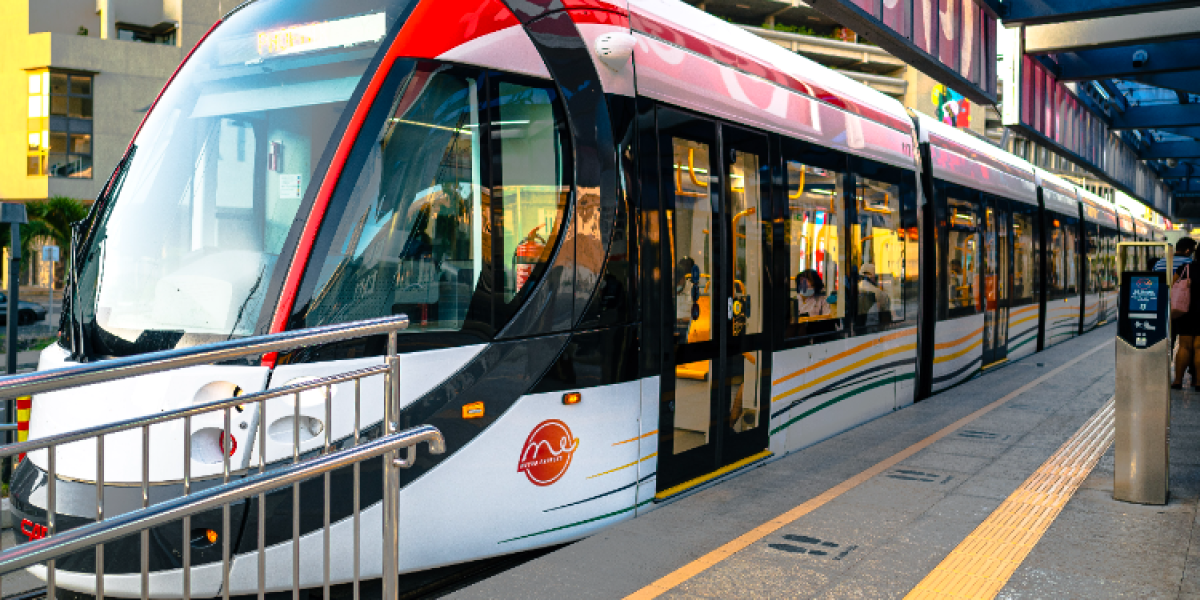
The Metro Express in Mauritius is expanding its hours of operation on Fridays and Saturdays, starting this week. Since the launch of first phase of the Metro Express in September 2019, which connected Port Louis to Rose-Hill, the company has been working to expand the rail system. So where does the Metro Express currently stand and what can we expect in the future?
Last week, it was announced that Metro Express Ltd will be extending its hours of operation by two hours on Fridays and Saturdays. Starting this Friday, April 7, passengers will be able to ride the tram until 9 p.m. on both days on the Port-Louis-Curepipe line. This decision was made to cater to riders who wish to take advantage of public transportation services in the evening, for outings or evening activities.
Future projects
But Metro Express Ltd has no plans to stop there. The state-owned company seems determined to democratize this means of transportation as much as possible. There are plans to extend the network to other regions of Mauritius.
During the inauguration of phase 3, the Prime Minister expressed his desire to cover all regions of the country with a tram network. He announced that the Metro Express will soon connect Rose-Hill to Côte d'Or. From there, the tram should head to the east of the country through Curepipe, La Vigie and Port-Louis, before conquering the west of the country from the Barkly station.
An old project
The Metro Express project in Mauritius dates back to 2013, when the Mauritian government announced its intention to build a rapid transit system to improve the mobility of the inhabitants. The project consisted of a 26 km metro line connecting Curepipe to Port Louis, the country's capital.
The Mauritian government adopted a phased approach to the construction of the metro. Instead of building the entire system at once, it was proposed to build the line in phases:
Phase 1: The first phase of the project, connecting the capital Port Louis to the city of Rose-Hill, opened in September 2019.
Phase 2: The second phase of the project, linking Curepipe to Port Louis, was completed last year.
Phase 3: A new line connecting Rose-Hill to Réduit was completed in early 2023. This line will connect several other important neighborhoods, such as Moka, Trianon and Bagatelle. It will also facilitate access to shopping centers and other recreational areas in the region.
A few challenges
Despite the undeniable success of the Metro Express project so far, with total ridership almost doubling after the opening of the Quatre Bornes extension, there are still a few areas that need to be improved. Metro fares are still higher than bus fares, and are only available every 10 minutes for now, which may not be enough for passengers in a hurry.
Additionally, some subway stations are not easily accessible due to their location, which may limit the use of the subway for some travelers. Better connectivity with buses, cabs, and parking facilities could encourage more people to use the metro.
Despite these challenges, the Mauritian government remains committed to developing the Métro Express into a sustainable, affordable, and accessible means of transportation for all islanders.
In addition to expanding the network to other regions, the government is also considering introducing measures such as reduced fares for students and the elderly, as well as monthly passes for regular users. Such measures would make the Metro Express more accessible and affordable for those who depend on public transportation.
Ultimately, the development of the Metro Express in Mauritius represents an important step forward in improving mobility for residents and reducing traffic congestion in the cities. Despite the challenges that remain, the Mauritian government remains committed to making the metro a popular and widely used mode of transportation throughout the country.



















